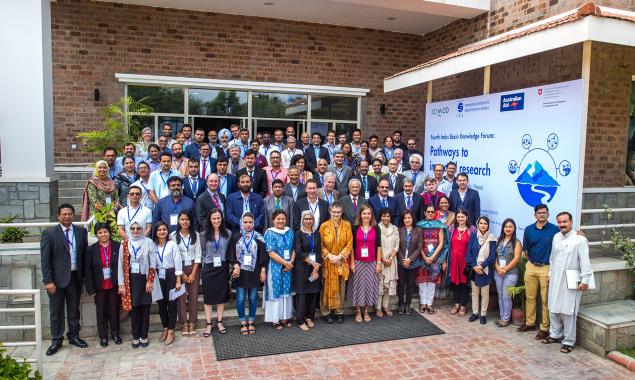
LUMS Centre for Water Informatics and Technology (WIT) actively became part of the Indus Basin workshop held in two parts on August 21-22, 2018 and August 23-24, 2019 at the International Centre for Integrated Mountain Development (ICIMOD), Nepal, to discuss water, energy and land nexus scenarios for Indus Basin.
The meeting brought together approximately 30 stakeholders representing different research, NGOs, donors and government organisations, who are working on cross-sectoral issues around water, energy, and land in the Indus Basin. The main goal of this workshop was knowledge sharing and stakeholder engagement with stakeholders from the four riparian countries.
In this workshop, Dr. Abubakr Muhammad, Director of Centre for Water Informatics & Technology (WIT), and Dr. Afreen Siddiqi (WIT Advisory Group), shared the existing challenges and potential future options for the Indus River Basin.
Ansir Ilyas, a PhD student at the Syed Babar Ali School of Science and Engineering at LUMS, presented his work at the workshop, which highlighted the impact of the implementation of smart irrigation technologies, in order to reduce water usage in the irrigation sector.
The second round of the meeting from August 23-24, was the fourth Indus Basin Knowledge Forum (IBKF) and the Indus Scenario Workshop, bringing over 100 researchers and policymakers from the four basin countries, including Pakistan, India, China, Afghanistan and beyond. They shared knowledge and advanced collaborative efforts for the sustainable resource management and policymaking. The IBKF aims to strengthen connections among those working in policymaking, research, and knowledge generation in the Indus Basin (IB), which is a key resource shared by the four major basin countries.
In its fourth iteration, the IBKF will revisit and strengthen connections between the participants of the Forum. For instance, the second forum identified a 10-point action plan, and important country perspectives were also noted. A common theme among country perspectives was the need to increase knowledge sharing, while addressing the systemic limitations to data sharing, policy linkages and science based research in the region.
Dr. Siddiqi, presented published work co-authored by Dr. Muhammad, titles ‘Socio-hydrological assessment of water security in canal irrigation systems: A conjoint quantitative analysis of equity and reliability.’ She presented the socio-hydrological assessment of water security that compares canal irrigation entitlements with water deliveries, using a conjoint analysis of system reliability and equity. In this work, they develop a set of definitions and metrics to quantitatively characterise reliability and equity using newly available data sets of 10-daily canal deliveries from 2007-2017 in the Indus Basin Irrigation System of Pakistan. Emphasis has shifted from distributing historically-defined volumetric supplies, to improving irrigation efficiencies and crop yields in order to achieve greater aggregate water and food security. Their analysis reveals stagnation and oscillation over time in system-level equity and reliability and reflects on the potential to positively affect canal irrigation performance and water security through a socio-hydrological approach.








